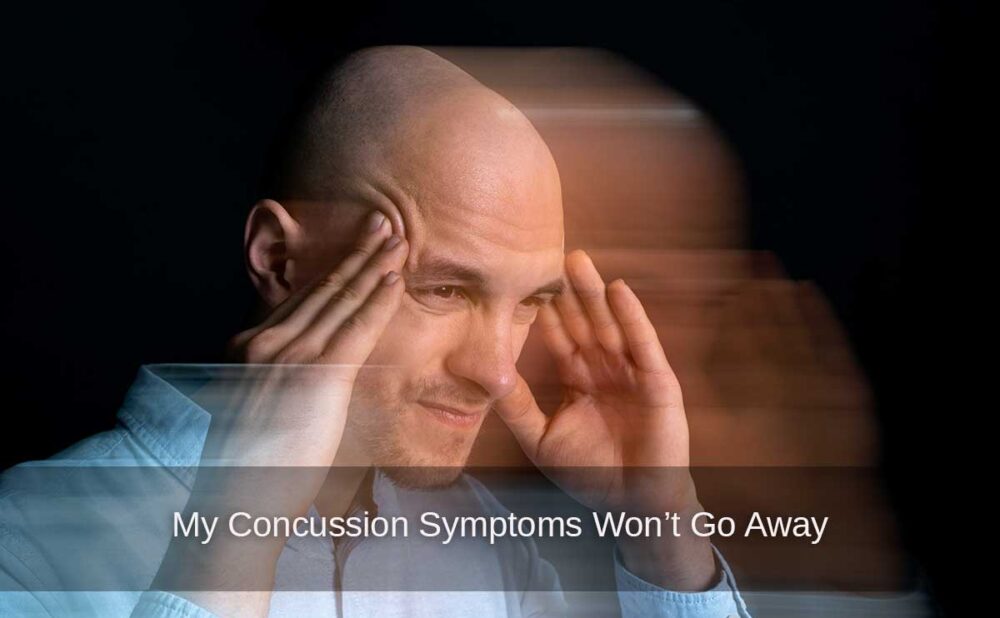My Concussion Symptoms from a Car Wreck Won’t Go Away
A car wreck can leave a lasting impact on both the body and mind, often in ways that are not immediately visible. One of the most concerning and sometimes overlooked injuries from a car accident is a concussion, a type of mild traumatic brain injury (TBI). If you’ve been in a car wreck and are still struggling with concussion symptoms weeks or even months later, you’re not alone. It’s crucial to understand why these symptoms persist, how to manage them, and when to seek further medical attention.
What is a Concussion?
A sudden impact or movement, like in a car accident, jolts the brain inside the skull, causing a concussion. Even if there is no direct blow to the head, the sudden force of a crash can cause the brain to move violently, leading to chemical changes and possible damage to brain cells. Symptoms of a concussion can range from mild to severe and may include:
- Headache or pressure in the head
- Confusion or disorientation
- Memory problems
- Dizziness or balance issues
- Sensitivity to light or noise
- Nausea or vomiting
- Fatigue or drowsiness
- Difficulty concentrating or thinking clearly
Why Won’t the Symptoms Go Away?
In most cases, concussion symptoms improve within a few weeks to a month. However, some individuals experience lingering symptoms that can persist for months or even longer. Post-Concussion Syndrome (PCS) is a condition with multifaceted causes.
- Severity of the Impact. The greater the force of the car accident, the more likely it is that a concussion could be severe enough to cause lingering symptoms. The force may cause prolonged changes in brain function, leading to ongoing symptoms.
- Previous Head Injuries. If you have a history of concussions or other head injuries, your brain may be more vulnerable, and recovery could take longer.
- Lack of Rest. After a concussion, your brain needs time to heal, and pushing yourself too hard or returning to normal activities too soon can exacerbate symptoms.
- Mental and Emotional Stress. Emotional factors such as anxiety or depression following an accident can complicate the healing process, making symptoms last longer.
- Undiagnosed or Misdiagnosed Injuries. Sometimes, the symptoms of a concussion may overlap with other injuries from the car wreck, such as whiplash, which can complicate the diagnosis and recovery.
- Age and Overall Health. Older adults or individuals with pre-existing conditions may experience longer recovery times, as their brains may be less resilient.
When Should You Be Concerned?
While a concussion is often considered a mild injury, if symptoms persist or worsen, it’s important to seek further medical evaluation. Some warning signs to watch out for include:
- Worsening headache or a headache that does not go away
- Increased confusion or disorientation
- Difficulty waking up or staying awake
- Seizures
- Weakness, numbness, or tingling in the limbs
- Severe dizziness or loss of coordination
If you experience any of these symptoms, it’s crucial to seek immediate medical attention, as they could indicate a more serious condition, such as a brain bleed or other complications.
Managing Persistent Concussion Symptoms
If you’re dealing with lingering concussion symptoms, there are several steps you can take to help manage your recovery:
- Rest. Adequate rest is key to allowing your brain to heal. Avoid activities that require intense concentration, such as using electronics, reading, or working long hours.
- Gradual Return to Activities. Slowly reintroduce physical and mental activities. Start with light activities, and if you don’t experience worsening symptoms, you can gradually increase the intensity.
- Physical Therapy. If you’re experiencing balance issues, dizziness, or headaches, physical therapy can be helpful in regaining strength and coordination.
- Cognitive Therapy. If you’re struggling with memory or concentration, cognitive therapy might help. Working with a neuropsychologist can be especially beneficial to retrain your brain.
- Pain Management. Over-the-counter medications like acetaminophen may help alleviate headaches, but you should avoid medications like ibuprofen, which can increase the risk of bleeding. Always consult with a doctor before taking medication.
- Mental Health Support. The emotional toll of persistent concussion symptoms can be significant. Therapy or counseling can help address any anxiety, depression, or post-traumatic stress that may result from the injury.
When to Seek Additional Medical Help
If your symptoms aren’t improving, it might be time to consult with a specialist, such as a neurologist or a concussion expert. They may perform further testing, like an MRI or CT scan, to rule out other underlying issues, or recommend more targeted treatments, such as medication for headache management or specialized therapy for cognitive or vestibular rehabilitation.
Dealing with the aftermath of a car wreck can be incredibly frustrating, especially when concussion symptoms refuse to go away. However, it’s important to remain patient and continue following a prescribed treatment plan. Recovery from a concussion takes time, and some individuals experience lingering effects for months, but with the right care, these symptoms can improve. Be sure to work closely with your healthcare provider, prioritize rest, and seek specialized treatment if necessary. Remember, your health and well-being are the top priority, and you don’t have to navigate the road to recovery alone.





